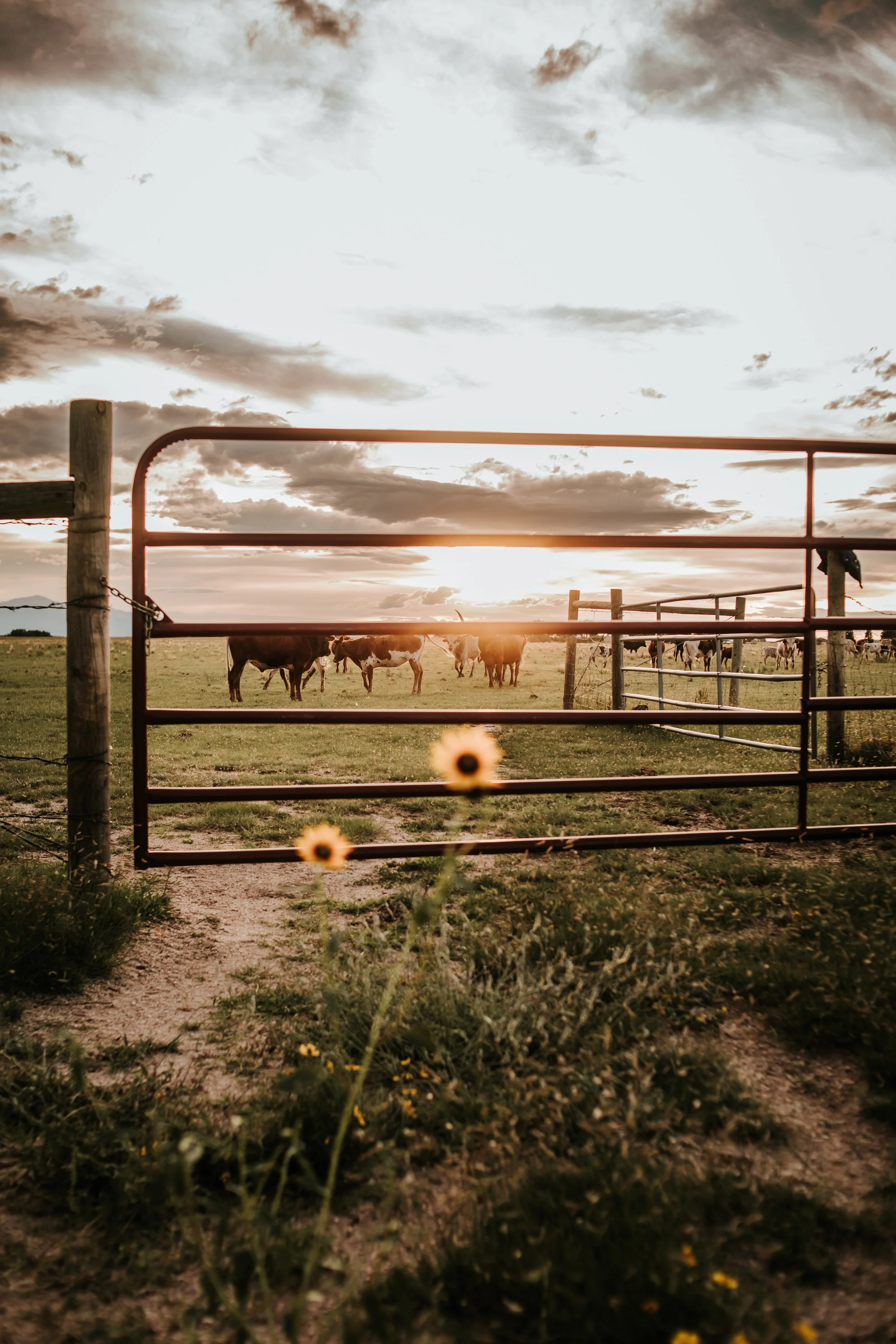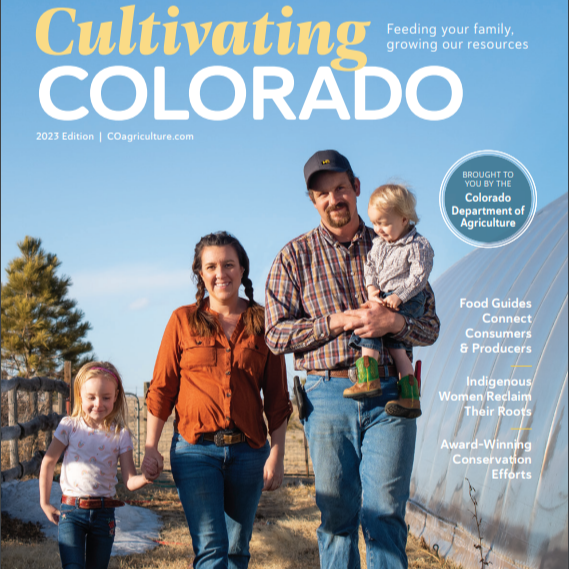Sign up for Heritage Belle Farms’ newsletter and get our, '6 Tips for Cooking Tender Grassfed Meat' for FREE
+ product availability, recipes and stories from the farm
About Us
Heritage Belle Farms is dedicated to building an agricultural model that honors land, animals, and community—one that can be replicated at any scale. We view the land as a living and diverse ecological resource, where livestock are both the economic foundation of our business and a powerful tool for ecological restoration. Guided by nature’s patterns, we work to cultivate healthy soils, thriving ecosystems, and resilient communities.
Through holistic, regenerative ranching, we strive to produce exceptional outcomes: biodiverse landscapes, healthy AGA-Certified grassfed meats, nutrient-dense pasture-raised eggs, ethically raised fiber, and meaningful educational connections with our region. Our land-based business model emphasizes stewardship, ecological function, and financial viability. The result is a diversified, enduring enterprise that allows us to preserve our land, our livestock, our livelihoods, and our agricultural heritage.
Land
Inspired by our family’s commitment to a natural, sustainable way of life—and driven by our passion for compassionate husbandry and ecological improvement—our land is managed without synthetic fertilizers, pesticides, herbicides, or any chemical inputs. Our native shortgrass prairie forages and carefully stewarded soils combine to produce nutrient-dense, omega-rich meat from animals raised outdoors in fresh air and sunlight.
Our rotational grazing systems are designed to mimic historic grazing patterns once created by herds of free-moving bison, elk, and deer. Through intentional timing, hoof impact, and natural fertilization, our grazing plans nurture soil function, enhance plant diversity, and protect sensitive ecosystems. We actively avoid harmful practices such as long-term fallow, continuous grazing, and overgrazing—choosing instead to support grasslands through movement, rest, and recovery.
Livestock
We believe livestock deserve to live authentic, pasture-centered lives. Our animals harvest the sun’s energy through the native forage they graze, and because they are raised as nature intended, routine antibiotics, synthetic growth hormones, or animal by-products are never used.
We prioritize low-stress stockmanship, thoughtful nutrition, and careful handling to ensure animal wellbeing and produce a healthier, more delicious product.
All of our animals are heritage breeds—traditional livestock raised long before industrial agriculture, selected over generations for natural fertility, forage efficiency, longevity, mothering instincts, disease resistance, and the ability to thrive in their environment.
Many heritage breeds are now endangered. By raising them, we help preserve genetic diversity that is essential to the resilience of our food system and our shared future.
Livelihood
We live in a rapidly changing climate, with a growing population and increasing demand for food and fiber. At Heritage Belle Farms, we are committed to demonstrating how livestock—when managed well—can help reverse ecological degradation, lower agriculture’s carbon footprint, and strengthen rural economies.
We believe resilient agriculture depends on resilient farmers. That is why our work includes community education, mentorship, and outreach. We share knowledge on regenerative grazing, nutrition, small-scale production, and holistic business management so beginning and small producers can build livelihoods that are environmentally sound, financially viable, and socially meaningful.
By expanding access to skills, tools, knowledge, and relationships, Heritage Belle Farms is working to grow a new generation of stewards capable of caring for land, feeding communities, and sustaining the rich agricultural legacy of the American West.
Meet your farmher
Katie Belle Miller is a wife, mother, and proud entrepreneurial farmHer and rancHer. She owns and operates Heritage Belle Farms and founded the SoCO [Sourced Colorado] Virtual Farmers Market Directory, helping connect Colorado producers directly with their communities. In October 2025, she joined the Quivira Coalition as the Education & Outreach Program – Technical Support Manager.
Katie balances the joyful chaos of farm life, professional life, volunteer commitments, and raising a family. She maintains her Holistic Management Educator accreditation through Holistic Management International (HMI), working with farmers and ranchers across the region to strengthen ecological, economic, and community resilience. She also serves as an Independent On-Farm Inspector with the American Grassfed Association.
Katie is deeply rooted in agricultural community service. She currently serves as: Board Supervisor with the El Paso County Conservation District, Club Leader with El Paso County 4-H, Board Advisor to the El Paso County Noxious Weed Advisory Commission, Board Advisor for CSU Extension’s El Paso County Advisory Council, Board Advisor with the Colorado Coalition to Enhance Working Lands, and Board President for the Upper Arkansas River Watershed Association.
She is a founding member of the Colorado Springs Co-op Learning Action Circle and a troop and service unit leader with Girl Scouts of Colorado. Katie also supports several regional livestock breed associations and manages her husband’s business, M.R. Excavating & Agricultural Services.
In the rare event of free time, Katie can be found horseback riding, cooking, reading, practicing photography, or working with wool from her flock—through Navajo weaving, knitting, sewing, and other fiber arts. Above all, her favorite role will always be being a mom.
Meet josh
Josh will be the first to say he’s not a farmer or rancher—but he is the reason anything gets done on the farm. With a natural talent for turning ideas into reality, he is endlessly resourceful, mechanically gifted, and able to build, fix, weld, or repair just about anything.
Josh also owns and operates M.R. Excavating & Agricultural Services, his excavating and custom haying business, where he digs foundations for custom homes and specializes in constructing boulder and rock retaining walls.
When he’s not working, Josh devotes his time to his favorite role: being a dad. It is the job that brings him the greatest joy.
Sign up for Heritage Belle Farms’ newsletter and get our, '6 Tips for Cooking Tender Grassfed Meat' for FREE
+ product availability, recipes and stories from the farm






